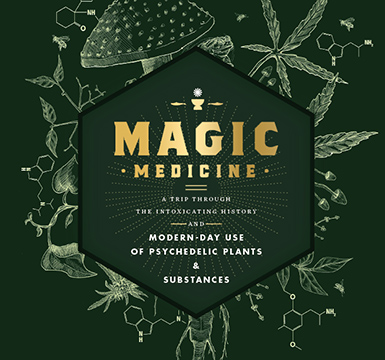news
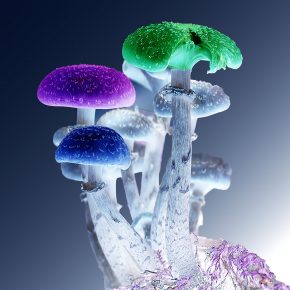
To maintain momentum, the Psychedelic Renaissance must go mainstream. What I learned by joining the conversation
This guest post is by Magdalena Tanev, Co-host of the Brains Byte Back podcast and Senior Writer at Publicize. The tides have turned regarding public opinion about psychedelics. Since Nixon’s 1970 Controlled Substances Act, which criminalized LSD, psilocybin, mescaline, and DMT, potential uses for these drugs have been legally stopped in their tracks and engulfed by a widespread moral panic. Until now. Not only are we seeing an uptick in vital research for clinical and therapeutic applications of drugs like psilocybin, MDMA, LSD, and ketamine, but big names from across the spectrum are speaking out in support of...
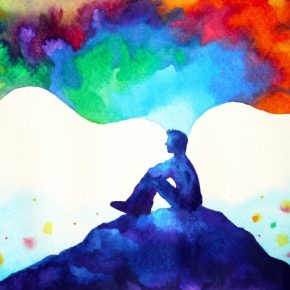
Coronavirus Silver Lining How the psychedelic community can leverage today’s renewed focus on mental health
Isn’t it time for a little good news? Today’s guest post by Lucia Huang is about Osmind, an organization offering a ray of sunshine in a time of cloudy uncertainty. This month, calls to the U.S. crisis hotline jumped 891%. Almost half of adults sheltering in place say that coronavirus has had a negative impact on their mental health. COVID-19 has also halted or slowed U.S. clinical trials advancing new medicines, many in behavioral health and psychedelic medicine including trials on MDMA and psilocybin. The pandemic has both short- and long-term implications on our mental health and is...
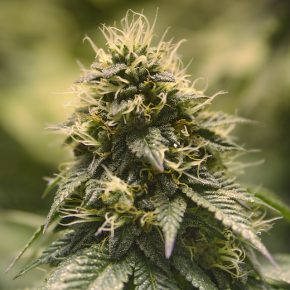
Oklahoma Voters Just Legalized Medical Cannabis To celebrate, I'm sharing an excerpt of my new book, Magic Medicine
In a historic referendum, Oklahoma voters have just approved one of the most progressive medical cannabis laws in the country. With a doctor’s orders, Oklahomans will be able to possess eight ounces in their homes, carry three ounces in public, and cultivate 12 plants. Unlike many other states, there is no limit to which diseases may be treated by cannabis — a doctor may prescribe it for any condition. The measure passed with a 57% to 43% margin. These regulations are relatively lax, especially for a red state in the heart of Trump country. But perhaps it should come...
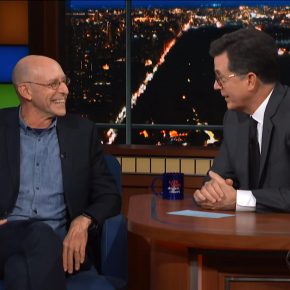
Michael Pollan Opens Up About His Powerful Psilocybin Trip on Stephen Colbert’s Late Show Pollan tried LSD, Psilocybin, and 5-MeO-DMT for his New Book
It sure seems like psychedelics are finally going mainstream. Michael Pollan, the author of The Omnivore’s Dilemma and The Botany of Desire, turns his attention to psychedelic science and medicine in his latest book, How to Change Your Mind: What the New Science of Psychedelics Teaches Us About Consciousness, Dying, Addiction, Depression, and Transcendence. Pollan went on The Late Show to talk about tripping and the ego with Stephen Colbert. As an “immersion journalist,” Pollan decided to try LSD, psilocybin, and 5-MeO-DMT — a compound from the venom of the Sonoran desert toad — as research for his book. About his psilocybin trip, Pollan says:...
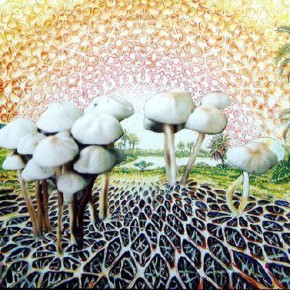
Scientists Unlock the Mystery of Magic Mushrooms, Allowing for Mass Production of Psilocybin
Some sixty years ago, Albert Hofmann — the Swiss chemist better known for discovering LSD — first isolated the active components of “magic” mushrooms, psilocybin and psilocin. Yet the question of how, exactly, the mushrooms produced these unique compounds remained a mystery ever since. Until now, that is. Scientists at Friedrich Schiller University Jena in Germany have identified the four key enzymes used by these fungal bio-factories to produce their magical ingredients. To accomplish this, Dr. Dirk Hoffmeister and his team sequenced the entire genome of two psilocybin mushroom species, Psilocybe cubensis and Psilocybe cyanescens. Even more impressive, they were...
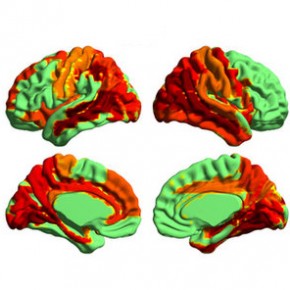
New Study: Psychedelics Really Do Produce a Higher State of Consciousness
Trippers, researchers, and abstainers alike have casually referred to the psychedelic experience as an “expanded” state of mind for many years. Even the terminology of being “high” implies a somehow raised form of consciousness. Now, for the first time ever, researchers have found neurological evidence to support that view. In a study conducted at the University of Sussex and Imperial College, London, scientists discovered that psychedelics like LSD, psilocybin, and even the dissociative ketamine all produce a “higher” state of consciousness. But what does that mean? Previous research has shown that measures of “neural signal diversity” in the brain change...
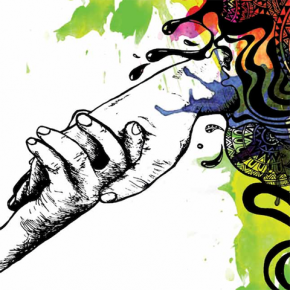
Fantastic New Trip-Sitting Guide: The Manual of Psychedelic Support
Even the hardiest, most vocal psychedelic enthusiasts recognize that trip experiences can be intense and sometimes difficult. Especially when taken in unfamiliar surroundings — such as crowded music festivals or in the desert heat of Black Rock City — psychedelics can cause untimely emotional meltdowns. Now there’s an excellent guide for handling psychedelic crises, produced by some of foremost experts on harm reduction techniques. It’s called “The Manual of Psychedelic Support,” and its laundry list of contributors includes the Erowids, Rick Doblin, Jon Hanna (the founder of Mind States), Linnae Ponté (who runs MAPS’ excellent Zendo harm reduction tent), five members of Kosmicare UK, Dave...
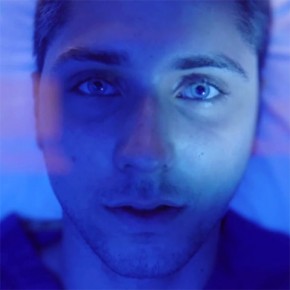
Scientists are crowd-funding the first ever LSD brain imaging study
Dr. David Nutt and Dr. Robin Carhart-Harris, the researchers who blew your mind with a landmark psilocybin study in 2013, are at it again. This time they’re examining the effects of LSD on the brain, and they want your help. The active research phase has already been conducted — 20 volunteers were dosed and scanned, producing the world’s first images of brains on LSD. Now the researchers must analyze the raw data before they can publish the results. To fund this final phase of the study, the scientists have launched a crowd-funding campaign on Walacea.com in partnership with the Beckley Foundation. Within the first 24 hours,...
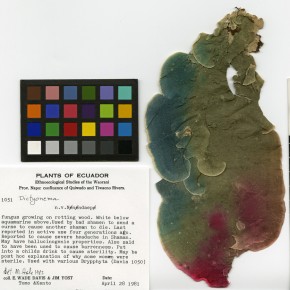
New species of lichen is apparently psychedelic: Dictyonema huaorani
25 February 2015 — This article has been updated to better reflect the limitations of the study. A new species of lichen has been discovered in the Ecuadorian Amazon rainforest, according to a recent paper published in The Bryologist. Researchers led by lead author Michaela Schmull have tentatively identified tryptamine and psilocybin in the lichen, among other potential substances. The story is a rather unusual one. There is only one known sample of the lichen in all of Western science, and it was collected in 1981 by ethnobotanists Wade Davis and Jim Yost while conducting research in Ecuador. In a...
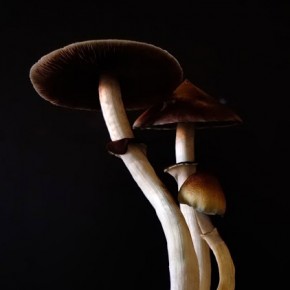
Psilocybin may help treat alcoholism, according to new study
According to a new study published in Psychopharmacology, psilocybin may be useful in treating alcohol dependence. The research was conducted at the University of New Mexico by a research team including lead author Dr. Michael Bogenschutz, and Dr. Rick Strassman. Yes, that Rick Strassman — the one who performed pioneering DMT research in the 1990s and authored DMT: The Spirit Molecule. With only ten human subjects, this was a “proof of concept” study — the researchers aimed to show that the drug is effective for treating alcohol dependence, and to provide a baseline for further studies. “Although recent studies have...
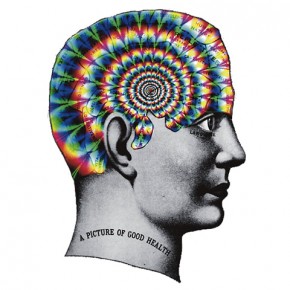
Psychedelics linked to reductions in suicide and distress
People who have used psychedelic drugs are less likely to suffer from depression, psychological distress, or suicidal thinking, according to a new study published in the Journal of Psychopharmacology. The research was led by Peter Hendricks, a professor of clinical psychology at the University of Alabama at Birmingham, using data from the National Survey on Drug Use and Health. Survey responses from over 190,000 adults were analyzed and the respondents were divided into two groups — lifetime psychedelic users and non-users. Lifetime users were defined as those who had ever, even once, tried DMT, ayahuasca, mescaline, psilocybin mushrooms, or LSD. 13.6%...
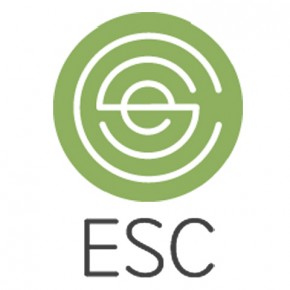
Damning Critique of ESC, the Sustainable Ayahuasca Non-Profit
You may have heard of ESC, the Ethnobotanical Stewardship Council which bills itself as “a nonprofit organization dedicated to improving lives by assuring the sustainability and safe use of traditional plants.” They recently raised over $20,000 in an Indiegogo campaign. Their aims may seem honorable enough, but not everyone is impressed. Below is a scathing condemnation of the ESC’s structure, methods, and plans for the future, signed by a number of academics and other concerned parties. (via PsyPressUK) Statement Critiquing the Ethnobotanical Stewardship Council (ESC) (*) We, the academics and other experts undersigned, manifest publically our rejection...

